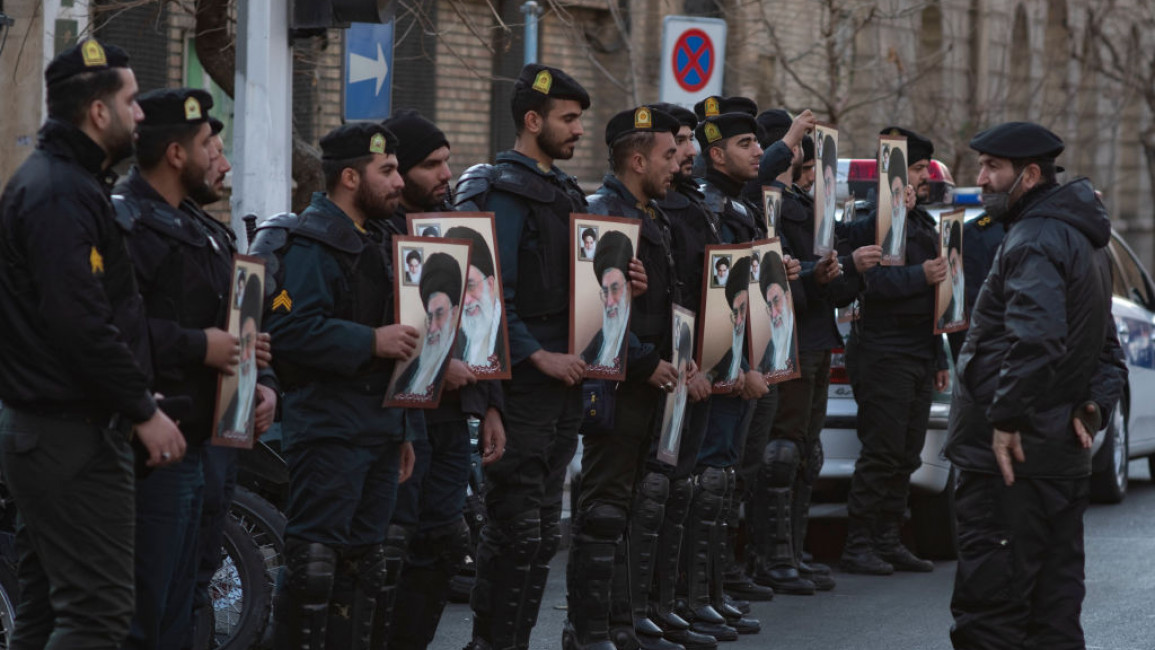Explainer: Who is Ahmad Reza Radan, Iran's new police chief with a brutal past?
In the early 2000s, when the "Islamic Morality Police" was established, Brigadier General Ahmad Reza Radan was one of the leading defenders of this special division and openly supported the arrest of women who did not follow the obligatory hijab. In 2007, he ordered the police to arrest "boys" with what he called "perverted hairstyle", and during the 2009 uprising, his forces demonstrated a new level of brutality by killing protestors. In 2011, he banned the physicians and specialists practising in private health centres from putting on ties.
Now, he is back again.
On 7 January, Iran's Supreme Leader Ali Khamenei appointed Ahmad Reza Radan as Iran's new police chief. Before his return to an operational post, he remained on the margins for eight years, directing Iran's police research bureau. At a crucial time in Iran's post-revolution history, he gained full power to lead the country's infamous police.
Radan is the police commander to whom, in a 2008 live TV program, the presenter said, "There is no one who sees you and is not scared of you".
The return of the man of terror
On 16 September, following the 22-year-old Mahsa Amini's death while in "Islamic morality police" custody, most Iranian cities were rocked by anti-establishment demonstrations. The protests began with opposition to the obligatory hijab and rapidly developed into nationwide demonstrations in which ordinary citizens chanted "down with Khamenei".
The Islamic Revolutionary Guard Corps (IRGC), the intelligence organizations, paramilitary Basij troops and the official police forces came together to contain the demonstrations. As a result, ordinary people paid a considerable price: at least 481 were killed, four demonstrators were hung, about 20,000 were arrested, and thousands were injured.
After four months, the authority suppressed the demonstrations in most major cities, however, the hijab law has been widely contested as many Iranian women appeared in public without covering their hair.
In response, the officials vowed to fully implement the hijab law again. On 10 January, Abdol Samad Khorram Abadia, a Deputy Prosecutor General, in an official order, urged the police and judiciary officials to "severely fight against those removing their hijab".
This new development in Iran explains why the 60-year-old Brigadier General Radan is back in power in the police force; a man with ultra-right political ideas and a long-lasting desire to implement Islamic Sharia law as strictly as possible.
Like most high-ranking officials in Iran, Radan is an IRGC member. However, before joining the elite forces, he first became a member of the paramilitary Basij troops. Basij is Iran's plain-cloth force being deployed for operations that the IRGC or other official troops prefer to refrain from visibly engaging with.
From paramilitary to police force
Radan joined the Basij forces in the conservative city of Isfahan in central Iran in 1981 when he was only 17. For 18 months, he was assigned to the southeastern province of Sistan-o Baluchistan and then was sent to the Kurdish city of Saqqez. In Kurdistan, he began his service as an assistant operator launching rocket-propelled grenades (RPG). The young Radan shone among the volunteer forces in the Basij and was permitted to join the rank of IRGC cadres.
Until the end of the Iran-Iraq war, he served in the Kurdistan province, where the IRGC was accused of killing civilian Iranian Kurds. There he shone again, and by the end of the war, he was one of the middle-ranking trusted commanders in the elite force, and when the reformist came to power in 1997, many IRGC forces like Radan were assigned to the police force.
At that time, the police played a vital role in the power struggle between the reformists, seeking more socio-political freedom, and the Supreme Leader, attempting to secure his iron grip on power. On paper, Iran's police force is under the interior minister's command. However, the police chief is directly appointed by the Supreme Leader.
During those critical years (1998-2005), Radan served as provincial police chief in Kurdistan and Sistan-o Baluchistan, two provinces where the police and security forces have harshly suppressed religious and ethnic minority groups since the 1979 revolution.
In 2006, Radan finally won the centre of attention by being appointed as the police chief in the capital Tehran. He equipped the morality police with new vans and gave the division full power to arrest women with what they considered "not a proper hijab". At this post, he stood out again and was awarded a higher position: Iran's deputy police chief.
One year after his appointment to the new post, the 2009 Green Movement erupted, and Iranians organised protests in most major cities urging the then-president Mahmoud Ahmadinejad to be ousted.
That was when Radan demonstrated his ability to brutally crackdown on social movements. The death in custody of three male protestors in Kahrizak detention centre happened during this time. On the streets, special police forces, along with the IRGC cadres and Basij paramilitaries, were shooting at and arresting protestors. Because of his role in suppressing protests in 2009 and 2010, the US and EU added him to the list of Iranians under international sanctions.
That reputation was not good for the nuclear talks Iran began under moderate then-president Hassan Ruhani's leadership. So Radan was moved to the shadows for eight years. But now it is his turn again.
When he was the head of the police research centre, in an interview, Radan revealed his desire to implement strict Sharia law: "If some [officials] had not disrupted the hijab law implementation, I believe we could have changed people's taste; we had to push a bit more ... and those [officials] who did not let us do that will be held to account on the day of the hereafter."



